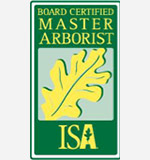Fallen Autumn Leaves Have Benefits
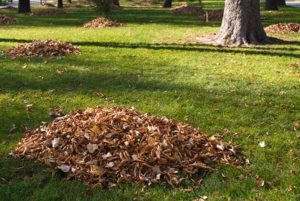 It took you all day, but you’ve finally done it. All the leaves have been raked into an immense pile, or multiple piles of leaves. As you step back to admire your collection with pride, you realize that you still need to figure out what to do with the mass you have acquired. Throwing them away is always an option, but, with all the hard work you have done in collecting them, there must be more use that can be served, right?
It took you all day, but you’ve finally done it. All the leaves have been raked into an immense pile, or multiple piles of leaves. As you step back to admire your collection with pride, you realize that you still need to figure out what to do with the mass you have acquired. Throwing them away is always an option, but, with all the hard work you have done in collecting them, there must be more use that can be served, right?
While throwing leaves into bags for garbage day seems to be the only answer, there are a multitude of ideas for repurposing your collected leaves, both to help your lawn in the future and also aid purposes you might not have known before.
Listed below are some ideas to help you get the most out of the hard work you have done so far with your leaves:
Why It Is Important To Keep Leaves Off Your Grass
The fall brings a host of colored leaves that fall majestically, helping everyone feel the “pumpkin spice spirit.” The oranges, yellows, and reds provide nice color to your lawn, but from the moment they hit grass, are generally considered a nuisance. Why is that? Primarily, fallen leaves trap an excess of moisture within the layers of leaves, down to the roots of grass. This excess moisture can lead to fungal growth, various types of pests, and mold. Gathering the leaves and repurposing can be important to the longevity and health of your yard. To gather your leaves, we recommend using a leaf blower for larger amounts of leaves, and raking up the less dense areas of your lawn.
Mulch Leaves For Lawn Fertilizer
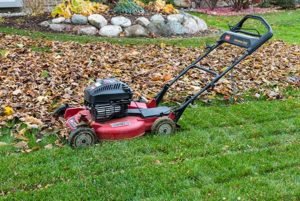
An important note is to not smother your lawn and grass bed in the mulch so as not to weaken your grass. When you are done, there should still be tips of grass peeking through the leaves. Although mulch can help your leaves, fertilizer is still important to the longevity and health of your lawn.
Mulch Leaves Into Your Flower Beds
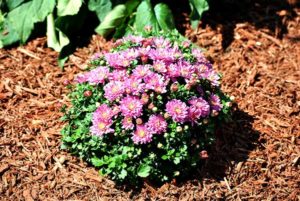
It is recommended to have at least three inches of mulched leaves on top of your flower beds in the winter months to provide insulation against the winter weather. If there are pine needles mixed in with the leaves, they can be used as added mulch without needing to be chopped.
Add Leaves To Your Aquarium
If you have a fish tank at home, placing dead leaves in their water can help maintain a healthier environment for your aquatic pets. Dead leaves will release tannins into the water, lowering the pH level to a more suitable level and can fight the growth of fungi and bacteria. Heavy metals in the water can also be absorbed by some of the leaves. Some of the leaves can be placed at the bottom of the fish tank to potentially improve the health of your sick fish. As an added bonus, many fish will even eat the leaves for a snack.
Donate The Leaves
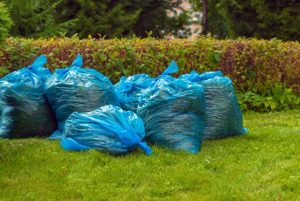
Whether you need mulch, compost, or even a few materials for an art project, there are numerous practical and creative uses for your fall leaves. If you are looking to make a compost pile, leaves can be an added supplement.
Compost can help with growing vegetables, reducing waste in landfills, and supplying carbon to potted plants. Compost piles work best when there is a combination of fresh leaves and dried materials. Just be sure you don’t let a blanket of leaves suffocate your lawn all winter!
Need Some Help With Your Fall Leaf Management?
We would love to help you with you fall leaf management. Contact us today for a Free Estimate and expert autumn leaf management advice from your trusted Ryan Pros!







